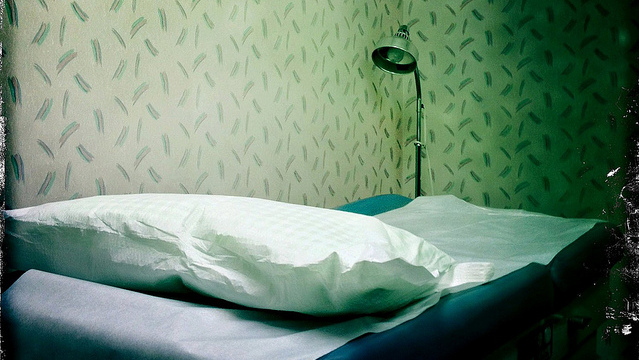
Kuwait’s director of public health announced the country will begin testing all visitors for homosexuality, banning those who fail the mysterious exam.
Yousuf Mindkar isn’t quite sure how his department will go about testing visitors, but is adamant that those who do not pass will not be allowed to enter the country, or any other Gulf nations, including Qatar, which is in line to host the 2022 World Cup.
“This contradicts previous assurances given by FIFA by the Qatar government that everyone will be welcome and that there will be no discrimination,” Peter Tatchell, an English LGBT advocate told the International Business Times. “FIFA now has no option but to cancel the world cup in Qatar. Allowing it to go ahead in these circumstances would involve FIFA colluding with homophobic discrimination.”
The outrage from Tatchell and other pro-LGBT campaigners across the globe have fallen on deaf ears for those who institute such laws.
“We will take stricter measures that will help us detect gays,” Mindkar said, according to a translation printed in Gulf News.
While the measures are sending shockwaves throughout the U.S., it’s nothing new for Kuwait. In May, the Kuwaiti Times reported that 215 gay men and women were arrested after investigations.
The arrests were celebrated by the newspaper with the headline, “Over 200 homos, lesbians held in countrywide Net cafe raids.” The story was accompanied by a photo of law enforcement officers receiving medals of appreciation from government officials.
In Kuwait, anyone under the age of 21 who is convicted of carrying out “homosexual acts” can received up to 10 years in jail. Just two years before the sweeping arrests of gays and lesbians, Kuwait’s censorship board banned the Egyptian film, “Bedoon Rakaba” over lesbian scenes.
Kuwait already mandates that those entering the country partake in a background health check, but the new unknown test will take its screening measures to a new level.
Speaking to Kuwait’s Al Rai newspaper, Mindkar was quoted as saying, “Health centers conduct the routine medical check to assess the health of the expatriates when they come into the GCC countries. However, we will take stricter measures that will help us detect gays who will be then barred from entering Kuwait or any of the other GCC member states.”
Homosexuality is a crime in Kuwait, along with other Gulf Cooperation Countries (GCC), including Bahrain, Qatar, Oman, Saudi Arabia and the United Arab Emirates. In all, 78 countries have banned homosexuality. In Saudi Arabia, homosexuality can be punished by death.


